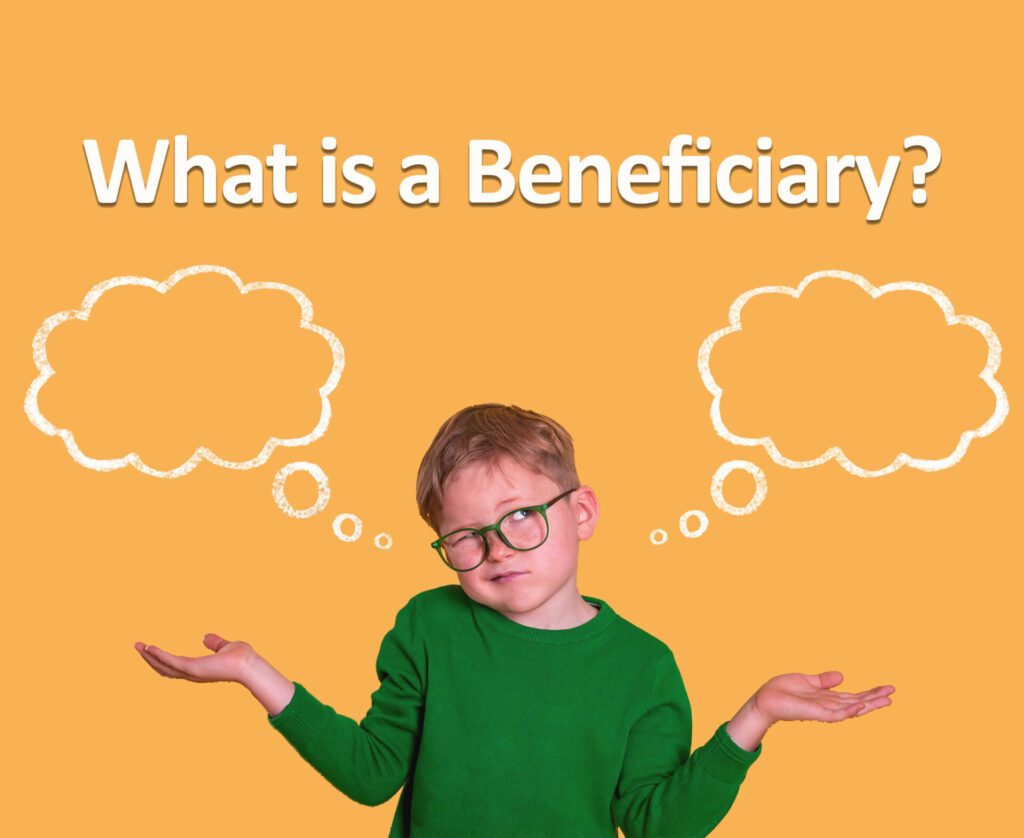
What does beneficiary mean?
What does Beneficiary mean?
A beneficiary is a person or thing that receives help or an advantage from something. At least that is the definition if you look beneficiary up in the dictionary, and it is a true statement. When it comes to estate planning, the word becomes further defined. In estate planning, a beneficiary is a person (or thing) that receives the benefit of money, property or real property from a trust or estate on behalf of a Testator, Benefactor or Settlor. For example, the beneficiary of a life insurance policy is the person who receives the payment from the insurance company after the death of the insured. Or one of the beneficiaries of the estate received the decedent’s automobile.
How do you designate a Beneficiary?
A beneficiary can actually be designated in several places and that can be problematic. Beneficiaries are most commonly designated in a Will or in a Living Trust, but they can also be designated in a life insurance policy, retirement fund, investment account or bank account. The reason this can be problematic is that the information can become outdated and conflicting. For example, a Testator (the person who makes a will) may designate the Beneficiary of his life insurance policy as his second daughter in his will, but he may have previously designated the beneficiary of that policy as his first son when he took out the policy with his insurance company. In this situation it will likely be up to the probate court to determine who the true Beneficiary of the insurance policy is.
Can a Beneficiary be removed from a will or a trust?
Yes, a beneficiary can be removed from a will or trust while the Testator is still alive and while the living trust is still revocable. The term “Last Will and Testament” means the final version of a will if multiple version exist or existed. People will commonly make updates to their will as life events occur and they may choose to add or remove beneficiaries. A living trust is typically a revocable living trust while the person who created it (the Settlor or Trustor) is alive. Revocable means that they are able to make changes to the trust. Often when the creator of the living trust passes, it becomes irrevocable and changes to it can no longer be made. It should be mentioned that each state has their own laws and rules governing the validity of a will, trust or estate. In most situations if it can be proven that a person made changes to their estate planning documents when they were not of sound mind or do to coercion, those changes may not be accepted by a court.

